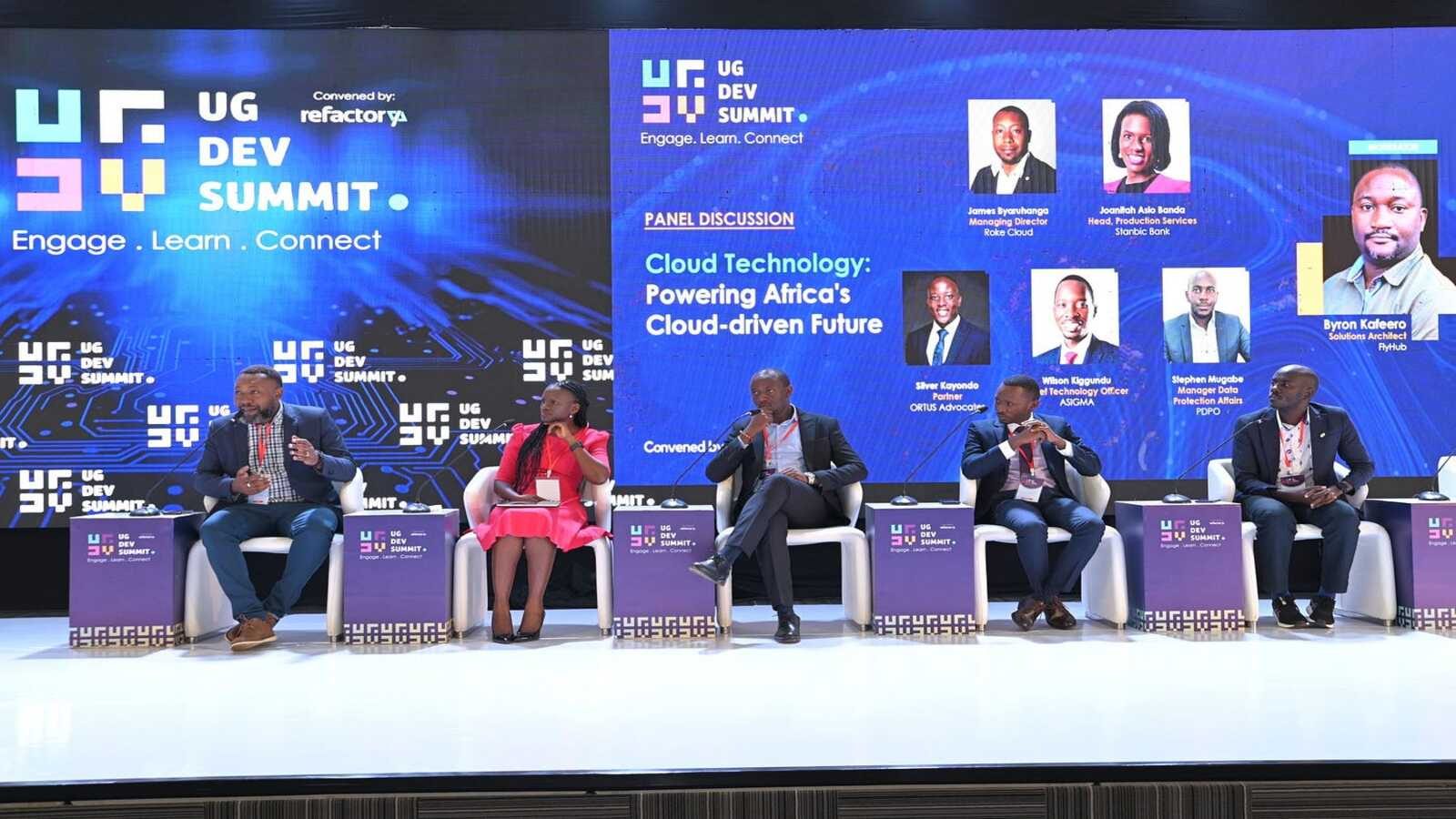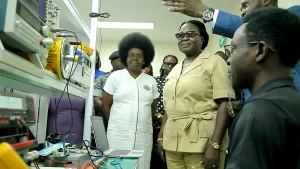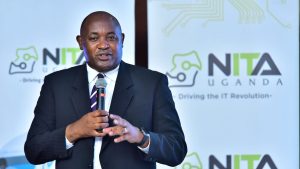Share
The first-ever Uganda Developers Summit, or UG Dev Summit, concluded on Friday and made a lasting impression on the nation’s IT scene. A stunning 500 people showed up for the two-day event, which aimed to alter Uganda’s developer community, increase IT adoption, and generate global prospects for local tech talent.
Along with important stakeholders like government MDAs, fintech partners, tertiary academic institutions, enterprise support organizations, recruitment agencies, HR associations, and tech industry regulators, this diverse group comprised 300 developers from East Africa and beyond.

The summit’s organizer, Mr. Michael Niyitegeka, Executive Director of Refactory, thanked the partners and guests for their passionate participation and expressed his delight in the summit’s success during his concluding remarks.
Without you here, this UG Dev Summit would not have been possible. And the fact that so many people have been seated here and paying attention during every session is evidence that we were doing something worthwhile for each of us individually,” he said.
Niyitegeka also unveiled plans for subsequent gatherings, saying that dates would be released in October for the 2025 summit, which will consist of regional developer summits building to a major Kampala finale.
The summit’s second day was jam-packed with activities, starting with keynote addresses by well-known business leaders. Michael Mukasa, CEO of Liquid Intelligent Technologies Uganda, and Rashmi Pillai, Group Head of Public Policy at Wave Mobile Money, discussed their predictions for Uganda’s technology industry. Mukasa underlined how cloud computing can revolutionize Ugandan businesses, offering ways to modernize IT infrastructures, cut expenses, increase income, and improve efficiency.
“Liquid Technologies has been at the forefront of expanding access to infrastructure and digital services, which are crucial for Uganda’s digital economy, creating new growth opportunities,” he said, emphasizing the significance of data protection and the roadmap for digital transformation.
As a fitting way to end his speech, Mukasa unveiled Uganda’s first Azure Stack, which would revolutionize cloud connectivity and help regional companies.
Masterclasses on crucial topics such design engineering, API development and deployment, and utilizing shared infrastructure in the digital economy were also offered throughout the summit. Using digital infrastructure to support last-mile communities via the Community Pass platform was a noteworthy issue.
This creative solution bridges the gap between underserved populations and vital services, improves connectivity, and catalyzes economic transformation by establishing trust within the financial ecosystem. Farmers can track their actions, establish a distinctive digital identity, and develop a digital footprint with Community Pass. This helps them gain access to vital services like finance and improves their standard of living.
After the masterclasses, cloud computing and tech governance were the topics of panel discussions. Due to a combination of private sector integration and government adoption, cloud service providers in Africa are expanding their offerings beyond internet connectivity, as stated by James Byaruhanga, Managing Director of Roke Cloud.
The advantages of cloud computing, such as scalability, cost savings, innovation, and security, were covered by Joanita Asio Banda. Although she admitted that stakeholders had security worries, she reassured them that features like encryption and redundancy took care of these issues.
A legal, regulatory, and policy strategist named Silver Kayondo gave a speech about the legal ramifications of cloud computing. We adhere to the principle of technology neutrality, thus you won’t find any laws specifically controlling the cloud, artificial intelligence, or other technologies. He clarified that while new technologies are developing quickly, it is not feasible to enact laws specifically for each one. In order to protect enterprises, he underlined the significance of compliance documents, such as data protection and kid protection policies.
The MD of PDPO Uganda, Steven Mugabe, emphasized the need for policies that are in line with Uganda’s Data Protection and Privacy Act and raised concerns about data sovereignty in cloud computing.
The revolutionary impact of rules in the digital era was highlighted by Andrew Bukenya, Senior Manager of MTN Uganda, during the panel discussion on ICT governance and policy regulation. According to him, rules have the power to transform conventional settings into digital ones.
In light of the emergence of new technologies, Wave Mobile Money Limited’s General Manager and Head of Mobile, Jackie Ochola, encouraged regulators to uphold consumer protection and encourage competition. Uganda has a strong entrepreneurial culture and great potential for ICT innovation, according to Irene Kaggwa Ssewakambo, Director of Research at UCC.
A large number of our workers create apps, and many are very successful outside of Uganda. Therefore, we have a great opportunity to use our ICT apps, and working abroad is no longer necessary, she stated.
The UG Dev Summit had clearly laid the groundwork for future technological innovation and cooperation in Uganda as it came to an end. The occasion not only demonstrated the nation’s developer community’s capability but also set the stage for future expansion and prosperity in the IT industry.












